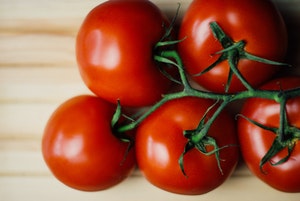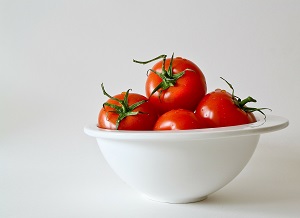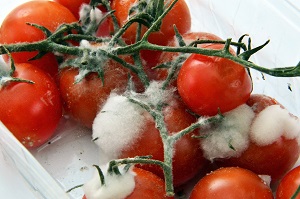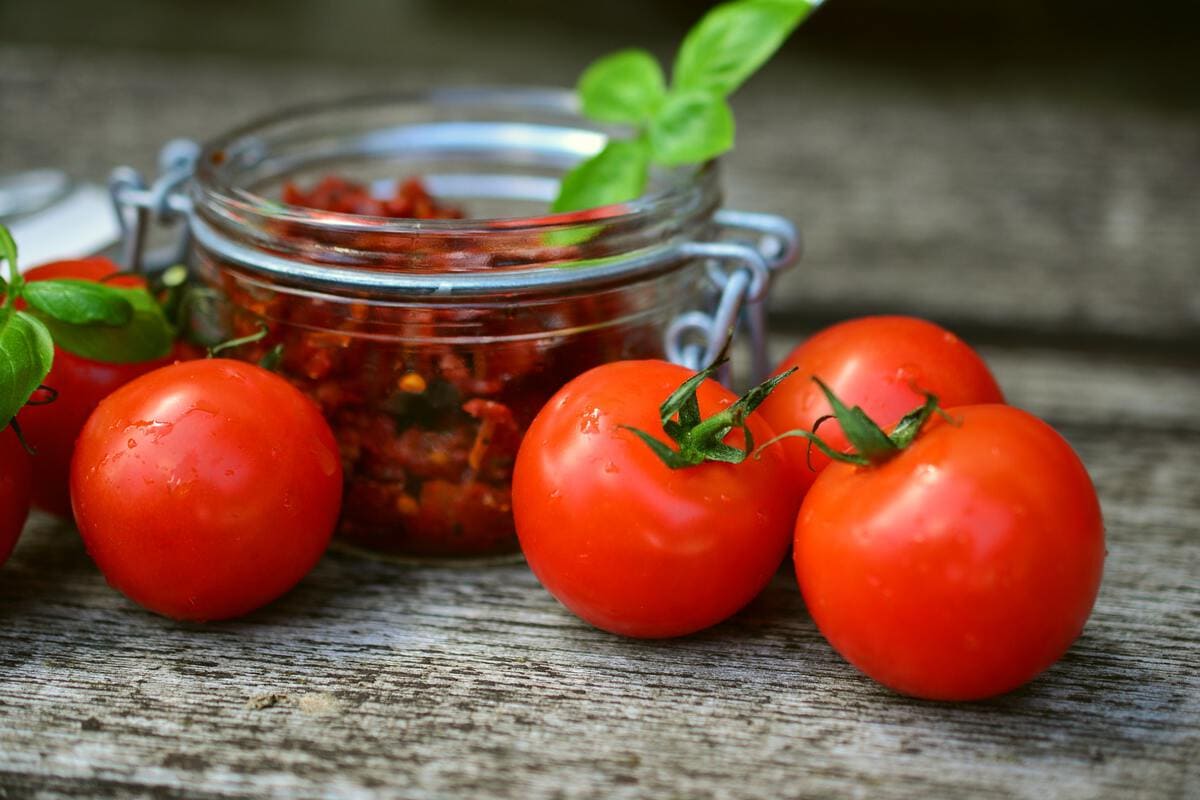You say tom-ay-to. I say tom-ah-to. Who cares! They’re delicious. Whilst most of us will probably buy the canned variety more often than not, there’s still something great about taking the time to make a homemade tomato sauce from fresh tomatoes, or slicing up some nice big juicy ones to put straight into your salad. Regardless of how you want to use them, you should still beef up your knowledge about how to store tomatoes to get the most out of them.

Top Rated Grocery Shopping List App
Organize your shopping, keep spending on track, create shopping lists fast & easy
Contents
How to Store Tomatoes
 Can tomatoes be kept on the countertop or in the pantry?
Can tomatoes be kept on the countertop or in the pantry?
Unripe – the countertop at room temperature or a cooler pantry is the best place to ripen your tomatoes. Unripe tomatoes are usually green or have patches of green skin on them. They will also be hard when lightly squeezed.
To ripen naturally, first remove any stalks or stems. Then, rest the tomatoes “scar” side down. Removing the stems stops moisture escaping via the stem. Storing them upside down helps to prevent air and extra moisture entering the tomato via the scar which would cause mold to grow and make them go bad.
If you want to ripen them quickly, place them in a breathable bag. Ideally, this will be a paper bag. But a plastic bag with some holes punched in it will suffice. This will trap ethylene gas that tomatoes produce whilst they ripen. This will then get reabsorbed to make them ripen quicker.
You can also store tomatoes in a paper bag with other ethylene-producing produce such as avocados or bananas.
Ripe – if ripe, tomatoes are best eaten as soon as possible, or stored in the fridge (see below)
 Can tomatoes be kept in the refrigerator?
Can tomatoes be kept in the refrigerator?
Unripe – unripe tomatoes should be stored on the countertop or in the pantry (see above). This is because putting them in the fridge significantly slows down the ripening process. In some cases, the ripening process will be stopped all-together, meaning the tomatoes will never become ripe.
Ripe – if you have ripe tomatoes that you are unable to use immediately, you should put them in the fridge. This will significantly slow down or even halt the ripening process, keeping them from going bad too quickly.
Some advice says that you should take refrigerated tomatoes out of the fridge and place them on the counter for 24 hours before you wish to use them. This will help them regain some flavor lost during the refrigeration process.

Top Rated Grocery Shopping List App
Organize your shopping, keep spending on track, create shopping lists fast & easy
 Can tomatoes be kept in the freezer?
Can tomatoes be kept in the freezer?
Unripe – the freezer is not a good place for storing tomatoes that are unripe. They are best stored on the countertop or in the pantry (see above).
Ripe – if you have a lot of ripe tomatoes that you aren’t going to use for a while, you can freeze them. To do this, first, wash and pat them dry. Then, place them on a baking sheet, making sure they don’t touch each other, before putting them into the freezer. Once frozen, transfer to a freezer bag or container.
Because the freezing process damages the cells, the tomatoes will be soft when thawed. This means that they will only be good for cooking with. They will not be good to use or eaten fresh. However, the freezing process does loosen the skin, making them much easier to peel.
How long do tomatoes last?
| Countertop or pantry | Refrigerator | Freezer | |
| Unripe tomatoes expire in… | 3-7 days | – | – |
| Ripe tomatoes expire in… | – | 1-2 weeks | 2-3 months |
 How to Tell When Tomatoes Have Gone Bad
How to Tell When Tomatoes Have Gone Bad
Look – the most reliable sign of whether a tomato has gone bad is mold. This mold will look like dark green or black spots on the skin of the tomato, as well as a fuzzier white kind.
If the skin shows sign of wrinkling, it has also gone bad.
Bad tomatoes also tend to leak fluid. If you pick up a tomato and notice that there is fluid underneath it, then it has gone bad.
Feel – if a tomato is soft or mushy when given a light squeeze, it has gone bad.
Smell – if you find that a tomato is producing a bitter or putrid smell, then it has gone bad.
Do you have any recipes for unripe or green tomatoes that you’d like to share? Is freezing ripe tomatoes easier for peeling rather than using hot water? What’s your favorite type of tomato? Let us know in the comments.
Don’t forget to check out other articles in our “How to Store” section.
